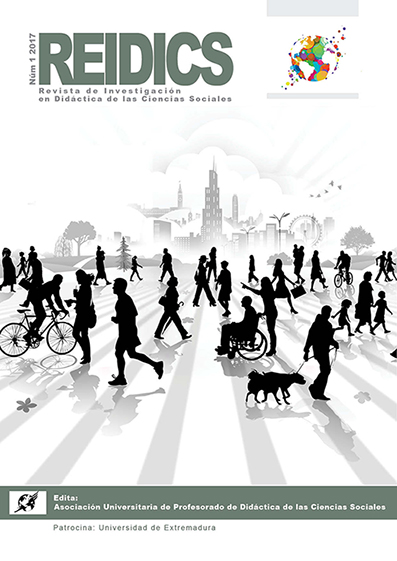Critical Literacy, Social Invisibility and Gender in the Training of Primary Education Teachers.
DOI:
https://doi.org/10.17398/2531-0968.01.118Keywords:
Critical literacy, teacher training, otherness, gender, primary education.Abstract
Understanding critical literacy as the ability to emerge the domain of critical reading and writing to the transforming action of the environment, this study aims to identify, on the one hand, the positioning of teachers of primary education in initial training to different social problems and on the other hand, dealing with the diagnosis treatment of otherness, social invisibility and gender in the educational intervention. By formulating these objectives, it aims to answer the narrative ways of future teachers who achieve satisfactory levels of critical comprehension of different social and historical stories, priority, about an outstanding social problem: gender inequality. By applying qualitative methods of content analysis, the ideas and propositions of narratives generated by students have been reduced to their coding into three pre-established categories of analysis: technical-exclusive perspective, socio-assimilationist perspective and critical-transformative perspective. These categories have been mapped to three curricular concepts: traditional, maximalist and criticism. The results report the persistence of traditional reading practices oriented to literal and inferential comprehension, and to a lesser extent, criticism of social discourse, assigning the participants to dominant traditional curricular perspectives, to the detriment of critical positions and transforming students. The data obtained confirm the need to implement specific programs for teacher training to acquire critical skills, from the concept of criticality as an indispensable element in identifying ideologies, discourses and hegemonic conceptions of reality for social action.
Downloads
Published
Issue
Section
License
Copyright (c) 2024 Delfín Ortega Sánchez, Joan Pagès Blanch

This work is licensed under a Creative Commons Attribution-NonCommercial-ShareAlike 4.0 International License.
Aquellos autores/as que tengan publicaciones con esta revista, aceptan los términos siguientes:
- Los autores/as conservarán sus derechos de autoría y garantizarán a la revista el derecho de primera publicación de su obra, el cual estará simultáneamente sujeto a la Licencia de reconocimiento de Creative Commons 4.0 BY-NC-SA que permite a terceros compartir la obra siempre que se indique su autor y su primera publicación en esta revista.
- Los autores/as podrán adoptar otros acuerdos de licencia no exclusiva de distribución de la versión de la obra publicada (p. ej.: depositarla en un archivo telemático institucional o publicarla en un volumen monográfico) siempre que se indique la publicación inicial en esta revista.
- Se permite y recomienda a los autores/as difundir su obra a través de Internet (p. ej.: en archivos telemáticos institucionales o en su página web) antes y durante el proceso de envío, lo cual puede producir intercambios interesantes y aumentar las citas de la obra publicada. (Véase El efecto del acceso abierto).
- Los autores y autoras han respetado la política de autoría de esta revista.







